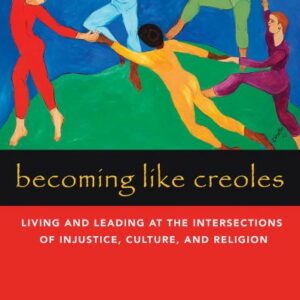 This year, humanity holds great potential for violence unlike anything we’ve ever seen before. And I’m not one for making overblown, fear-mongering prophesies. More than 50 countries that are home to half the planet’s population will vote (or have voted) this year. With any election (or advocacy), there is great potential for peaceful transitions of power as well as great potential for massive amounts of violence. Given these great potentials, now seems like as good a time as any for Christians around the globe committed to nonviolence to think carefully about how we go about enacting justice both within and outside of the body of Christ.
This year, humanity holds great potential for violence unlike anything we’ve ever seen before. And I’m not one for making overblown, fear-mongering prophesies. More than 50 countries that are home to half the planet’s population will vote (or have voted) this year. With any election (or advocacy), there is great potential for peaceful transitions of power as well as great potential for massive amounts of violence. Given these great potentials, now seems like as good a time as any for Christians around the globe committed to nonviolence to think carefully about how we go about enacting justice both within and outside of the body of Christ.
Often, when the term “conflict” is mentioned in Western evangelical Christian circles, Matthew 18:15-17 is quick to follow. To quote the passage in full:
“If your brother or sister sins, go and point out their fault, just between the two of you. If they listen to you, you have won them over. But if they will not listen, take one or two others along, so that ‘every matter may be established by the testimony of two or three witnesses.’ If they still refuse to listen, tell it to the church; and if they refuse to listen even to the church, treat them as you would a pagan or a tax collector.” (NIV)
Despite the fact that this passage does not apply to every instance of conflict among believers and is often abused, it has become the mainstay in global Northern evangelical circles. It merits considering why this is the case. I would contend that it is at least, in part, reflective of cultural biases that problematically center a view of the world geared toward privacy, individual agency, and personal responsibility.
Regardless of cultural biases, a singular focus on Matthew 18 for navigating conflict both limits biblical approaches to conflict and hampers efforts at social justice. Below, I explore three nonviolent alternative scriptural approaches to navigating conflict—principled pluralism, public confrontation, and parting ways. I aim to offer some ways for Christians committed to social justice to continue to usher in the kingdom and serve the least of these while nonviolently navigating conflict with coreligionists (and others) who might otherwise impede progress on a range of issues and forms of advocacy.
Principled pluralism in Christian conflicts
The “plural” approach takes its name from the idea that one way of navigating conflict is by defusing tensions through allowing a plurality of voices when it comes to mission. In Mark 9:38-40, Jesus offers a proxy for this approach in counseling his disciples to refrain from insisting on one way of driving out demons. There is not necessarily one way to go about social justice, and knowing one’s role can mitigate much potential conflict. Even when there are real stakes involved around worshiping God or idols—as seen in a parallel passage in Joshua 22—dialogue often proves more effective at mitigating potential for conflict and broadening our visions of what worship and advocacy can look like this side of eternity.
Public confrontation in Christian conflicts
The “public” approach takes its name from the idea that another way of navigating conflict is by actually calling out unbiblical practices publicly. For many risk-averse types, this might be uncomfortable or even seem sinful, as it potentially leads to “foolish” quarrels and controversies (2 Timothy 2:23, Titus 3:9) or theological, social, and political factions within the body of Christ (1 Corinthians 1:10-15). However, the “public” approach is not necessarily unbiblical. Paul publicly confronted Peter due to the public nature of his distortion of the Gospel (Galatians 2:11-21). Sometimes conflict navigation requires public (nonviolent) confrontation. Even the Matthew 18 model allows for this. That said, we must be thoughtful in using this approach, as it can backfire, especially if our motives aren’t the best (see: Numbers 16). Nevertheless, public confrontation can help mitigate tendencies toward “saving face” and “dealing discretely” with issues that require public repentance.
Sometimes, conflict navigation requires public (nonviolent) confrontation. Even the Matthew 18 model allows for this.
Parting ways in Christian conflicts
The “parting” approach takes its name from the idea that sometimes constructively navigating conflict means going our separate ways. This might seem opposed to making every effort to preserve unity in the body of Christ (Ephesians 4:3), but unity does not always mean uniformity (1 Corinthians 12). Indeed, we have numerous instances of the people of God going separate ways after a conflict without sinning, sometimes after explicitly reconciling (e.g. Genesis 33), and other times it’s not so clear (e.g. Acts 15:36-40). In offering the parting approach, I am not attempting to justify “cancel culture,” but recognizing that sometimes pursuing a justice-oriented mission means dusting off one’s feet. Not everyone—even in the household of faith—will be convinced to join. Wise stewardship of the limited time and resources we have this side of eternity means thoughtfully considering when to employ a “hearts-and-minds” approach to conflict and when to move on.
Where do we go from here?
A singular focus on Matthew 18 for navigating conflict both limits biblical approaches to conflict and hampers efforts at social justice. Such reliance hampers social justice since it indicates problematic biases rooted in a global North, neoliberal view of the world that exalts privacy, individual agency, and personal responsibility above biblical mandates. Instead, Christians in the global North should consider and check their cultural, economic, and political biases when discussing conflict. By allowing the Scriptures and the global body of Christ to discipline our thinking, we reinforce the human, communal, and collective aspects of navigating conflict in opposition to increasing tendencies to unilaterally privatize, quantify, litigate, and dehumanize conflict with our global North lenses. We also demonstrate the humility of Christ by looking not to our own interests but to those of others (i.e. global siblings in faith as well as fellow image bearers) as we excitedly co-labor toward, and anticipate, the kingdom.
 Alex Haskins (PhD University of Chicago) is Assistant Professor of Politics and International Relations at Wheaton College (IL). His writing focuses on empire and colonialism in the global history of political and legal thought. He has previously published on these themes in the Du Bois Review and Political Theory. Haskins was born in Okinawa, but is a native of St. Louis. His teaching and research interests in the field have been sustained over the years by a deeply felt need to grapple with the complex histories of imperialism, colonialism, and Christianity in the modern world—particularly in Africa, the Americas, and Asia—and what implications such grappling might have for global justice, international law, development, multiculturalism, and global missions. He is currently revising his book manuscript on domination in the political thought of Montesquieu (1689-1755), Fukuzawa Yukichi (1835-1901), and W.E.B. DuBois (1868-1963).
Alex Haskins (PhD University of Chicago) is Assistant Professor of Politics and International Relations at Wheaton College (IL). His writing focuses on empire and colonialism in the global history of political and legal thought. He has previously published on these themes in the Du Bois Review and Political Theory. Haskins was born in Okinawa, but is a native of St. Louis. His teaching and research interests in the field have been sustained over the years by a deeply felt need to grapple with the complex histories of imperialism, colonialism, and Christianity in the modern world—particularly in Africa, the Americas, and Asia—and what implications such grappling might have for global justice, international law, development, multiculturalism, and global missions. He is currently revising his book manuscript on domination in the political thought of Montesquieu (1689-1755), Fukuzawa Yukichi (1835-1901), and W.E.B. DuBois (1868-1963).


